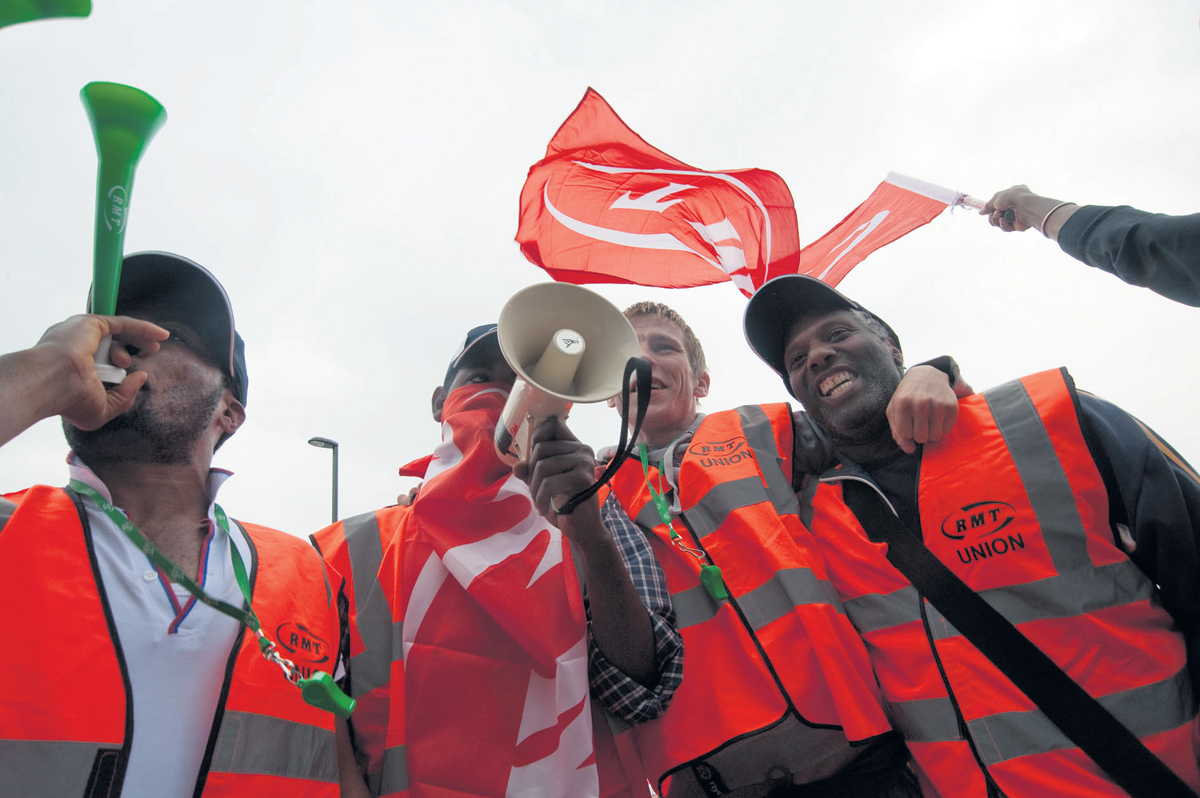RMT AGM: Delegates focus on the looming battles over jobs, pay and pensions
RMT AGM delegates in the Socialist Party
The highlight of the 2021 RMT annual general meeting (AGM) was being able to accept a pay offer from Abellio ScotRail that bust open the government’s pay freeze for 2021.
The AGM had already rejected an offer that tied an increase in 2022 to unacceptable productivity strings, which delegates from ScotRail felt would lead to job cuts. This was the second time that ScotRail’s ‘final’ offer had been rejected after the executive had thrown out an inferior offer the previous week.
Finally, an offer was made for a no-strings offer of 2.5% for 2021, with new negotiations to start for 2022. This is the first time a train-operating company has made an offer of a pay rise without productivity strings since the government imposed a pay freeze on the rail industry, along with the public sector.
This victory on ScotRail can now act as a springboard for RMT’s national ballot of workers at train operating companies and Network Rail to break the pay freeze across the board.
The battle to keep guards on our trains was also discussed, with delegates supporting the position of the executive to put an offer to resolve the dispute on South West Railways (SWR) to a referendum. The offer had been overwhelmingly supported by members. The SWR deal did not secure the role of the guard in train dispatch to the extent RMT had sought, but it does guarantee a safety critical guard on every train, and came following 72 days of strike action by RMT guards on SWR.
AGM delegates rejected a number of organisational resolutions that had been coordinated by the so-called Broad Left. These resolutions sought to begin a review, to be conducted by the general secretary, of RMT branch, regional and executive structures. Rightly, delegates preferred to focus on the looming battles over jobs, pensions, pay and conditions rather than begin a process of reorganisation that would be divisive and a massive distraction from our struggle to defend members across RMT sectors.
Several, though not all, of these resolutions focused on the idea of reserved seats on the executive, but the resolutions predetermined that the overall size of the executive would not change. This means one or more region losing its executive representation. Rather than appoint the general secretary to consider this matter the AGM agreed a resolution to consult the Black and Ethnic Members Advisory Committee on the issue of encouraging more diversity in leadership positions as a first step.
A number of political, and other items did not get taken, as the AGM was attempting to cover items outstanding from the Covid-truncated AGM in 2020, as well as the items for 2021. To further complicate matters, RMT staff walked out on Friday lunchtime, further shortening the AGM by half a day. Staff stated they were unhappy with the AGM decision to overturn an executive decision regarding protests held at RMT headquarters following the use of compulsory redundancy to deal with a member of staff working on the Union Learner Fund when government withdrew funding.
It is essential that the AGM remains the sovereign body, and that means the AGM decision to overturn the executive position must stand. Contrary to reports carried by the BBC, ITV and Morning Star, among others, staff were not called scabs by delegates, many of whom sought to offer a statement in support of our staff after the vote had been taken.
RMT staff are valued by AGM delegates, branches and members, and it is important that this is clearly stated, while we also uphold the democratic structures of our union.
A Special General Meeting will most likely need to be convened now to finish business but delegates have made one thing clear: RMT members will not let the government and bosses use the Covid pandemic as cover to attack our pay and conditions or to impose massive job cuts.









